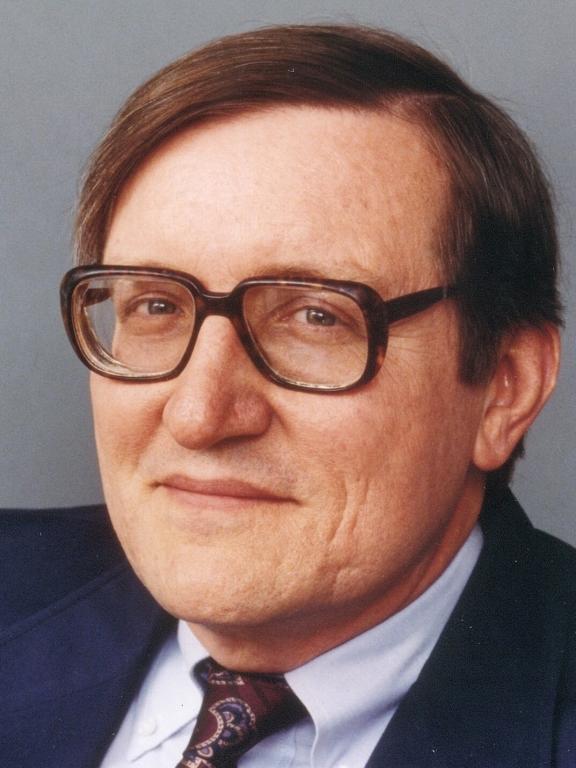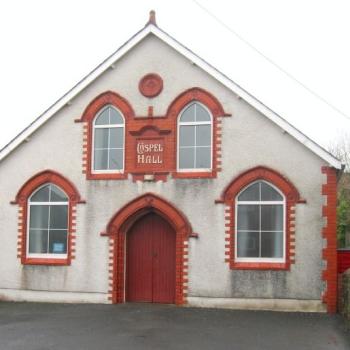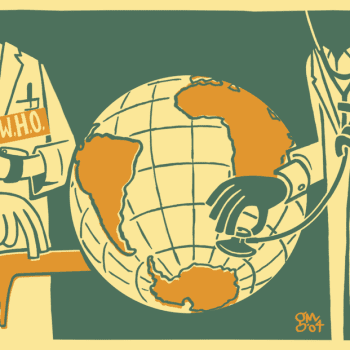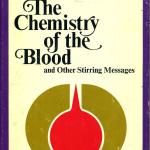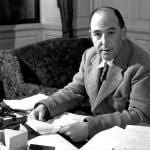Richard Ostling is a long-time and highly-respected journalist who focuses on religion. He was a senior correspondent for Time Magazine back in its prime, and he was the chief religion writer for the Associated Press. He has also written for Christian publications such as Christianity Today and World Magazine. He has interviewed the likes of Billy Graham, Mother Teresa, the Dalai Lama, and the future Pope Benedict. The Center for Religious Inquiry has called him “one of the most distinguished and honored writers on religion in America.”
My point is, Ostling, who describes himself as an evangelical Christian, knows America’s religious scene from the inside out.
For the last few years, he has been posting on Get Religion, a blog focused on religious journalism, designed to correct bad coverage and shed light on religious topics often misunderstood in the secular press, which tends in the words of one of its practitioners to “not get religion.” I’m sorry to see that Get Religion, which I’ve followed to a number of years, is shutting down this month. (Ostling says he will move to Religion Unplugged.) For one of his last posts, he offers a different take on the state of evangelicalism today, especially perceptions about evangelicals and politics.
In his post What in the world is happening to evangelicalism in 21st Century America?, he says,
Pundits regularly tell us that in the Donald Trump era we’re no longer even sure what an “evangelical” is, that it’s as much a socio-political label as a religious one and that this redefinition damages churches’ spiritual appeal to outsiders. Maybe so, but despite the media focus on outspoken agitators on the national level, local evangelicals are the least politicized faith grouping, according to noteworthy Duke University data at pages 52-58 in this (.pdf) document.
[I fixed the broken link in the original. The study found that 82% of Black Protestant congregations reported some kind of political activity; 81% of Catholic congregations; 52% of Mainline Protestant congregations; and 43% of evangelical congregations.]
Ostling takes up the “head-scratcher” of why so many evangelicals support Donald Trump, with his record of problematic morals. “For one thing,” he says, “they automatically give lopsided support to Republican nominees, whether Romney, McCain or Bush, just like Black Protestant, Jewish, non-religious and anti-religious Americans have done for Democrats. Many truly believe that they have no choice.”
He also brings up the Rasmussen poll that we discussed yesterday (which I was alerted to by this post), showing the enormous gap in beliefs, values, and worldview between America’s cultural elite, which would include most journalists writing about the subject, and average Americans.
He says that evangelicals tend to be on the “average American” side. Furthermore, it shouldn’t be a surprise that evangelicals would join a populist political movement. “Perhaps evangelicalism, that most populist of Christian expressions, simply reflects feelings among grass-roots Americans over-all.”
As for the scandals that have plagued so many evangelical churches lately, Ostling draws on some insights from Jake Meador at Mere Orthodoxy:
One major theme is that over recent years evangelical leadership by well-seasoned Baby Boomers such as the late Tim Keller in New York City has given way to Gen Xers whose freewheeling ministries have a dangerous lack of outside accountability and essential spiritual maturity when at young ages they build huge platforms through niche social media.
Ostling makes a point that I hadn’t realized: Much of the news about the sexual, financial, and abuse scandals in evangelical congregations has been uncovered by evangelicals themselves! “The independent Christianity Today and World have long records of biting evangelical hands that feed them with courageous investigative reporting.”
He also credits “young Christian muckrakers”; specifically, the sites The Roys Report, Ministry Watch, and The Wartburg Watch.
We rarely see this sort of intense coverage about moderate and liberal “Mainline” Protestant groups. Are they purer than the conservatives?
More likely, they lack investigative outlets like those listed above. As in so many areas, U.S. evangelicalism has been notably moralistic, innovative, energetic and surprisingly bold in journalistic enterprise.
UPDATE: I have just discovered that Richard Ostling is also a fellow Patheos blogger! At Religion Q & A, he takes questions about religion that people send in (e.g., “Will the Catholic Church allow married priests?”, “Is it time for the Southern Baptist Convention to change their name?”, “Why does the Catholic Church spurn Masonic lodges?”) and answers them under the nom de plume of “The Religion Guy,” with readers invited to join the discussion.
Photo: Richard N. Ostling via Get Religion


